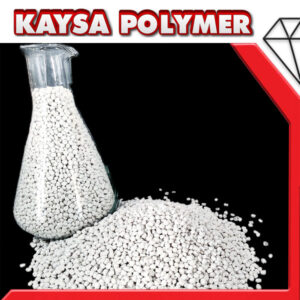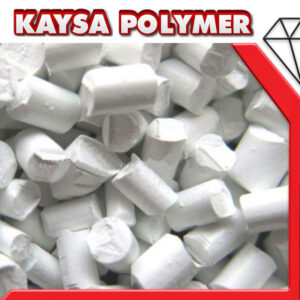Sale polymer compound
- Products
- Sale polymer compound
Showing all 2 results
Important criteria when sale polymer compound
When selling polymer compounds, there are several important criteria to consider. Here are some key factors to focus on:
Quality: The quality of the polymer compound is crucial. Ensure that it meets the required specifications, including physical properties, chemical composition, and performance characteristics. Consistency in quality is essential to build customer trust and satisfaction.
Application-specific properties: Different industries and applications require specific properties from polymer compounds. Understand the target market and tailor your product offerings to meet their unique needs. Consider factors such as strength, flexibility, heat resistance, chemical resistance, and electrical properties.
Processing: Is the compound easy to process using the customer’s equipment (e.g., injection molding, extrusion)?
Customization options: Offering customization options can be a competitive advantage. Customers may have specific requirements in terms of color, additives, fillers, or other properties. Providing flexibility to customize the polymer compounds to their needs can attract more buyers.
Supply chain reliability: Ensure a reliable and consistent supply chain for your polymer compounds. Timely delivery, efficient logistics, and inventory management are essential to meet customer demands and avoid disruptions in the supply chain.
Price per unit: Is the price of the compound competitive with other options?
Minimum order quantity (MOQ): Does the MOQ fit the customer’s production needs?
By considering these criteria, you can enhance the marketability and sales potential of your polymer compounds. Kaysa Polymer Company, a producer of masterbatch and polymer compounds, offers you the best price and quality. To know the price, contact the company number +982122500033 or WhatsApp number +989034719105.
The Essential Criteria for Successful Selling Polymer Compounds
Selling polymer compounds is a multifaceted process that requires a combination of technical expertise, sales acumen, and strategic thinking. Here are the essential criteria for successful selling:
- Technical Expertise: As a seller of polymer compounds, you must have a deep understanding of the technical properties, formulations, and applications of the products you’re offering. This knowledge will allow you to engage in meaningful discussions with customers, provide technical guidance, and position your products as the best solution for their needs.
- Consultative Selling Approach: Effective selling of polymer compounds requires a consultative approach, where you actively listen to your customers, understand their pain points, and collaborate with them to develop tailored solutions. This approach builds trust, fosters long-term relationships, and positions you as a valuable partner rather than just a vendor.
- Effective Communication Skills: Clear and effective communication is crucial in the polymer compound sales process. You must be able to explain complex technical information in a way that is easily understood by your customers, and you should be skilled in presenting your products and solutions in a compelling and persuasive manner.
- Relationship Building: Successful selling of polymer compounds often relies on strong relationships with customers. By investing time in building and nurturing these relationships, you can better understand your customers’ needs, anticipate their future requirements, and position your company as a trusted and reliable partner.
- Adaptability and Flexibility: The polymer compound market is constantly evolving, and successful sellers must be able to adapt to changing customer needs, market trends, and competitive dynamics. By maintaining a flexible and adaptable approach, you can quickly respond to new opportunities and challenges, and continue to provide value to your customers.
the wholesale price of polymer compounds
The wholesale price of polymer compounds can vary depending on several factors, including the type of polymer, quality, quantity ordered, market demand, and supplier pricing strategies. It’s important to note that specific pricing information is highly dynamic and can change over time due to market fluctuations and other factors. Therefore, it’s recommended to consult with suppliers or industry sources for the most up-to-date pricing information. Additionally, negotiating prices and establishing long-term relationships with reliable suppliers may also provide opportunities for favorable pricing terms.
Online marketplaces allows you to source wholesale polymers from various suppliers and request quotes.
Plastics industry publications may include pricing information or trends.
Many manufacturers list contact information on their websites so you can inquire directly about pricing for specific compounds and quantities.
Remember, these are just starting points, and the actual price you pay will depend on negotiation and the factors mentioned above.
Understanding the Market for Polymer Compounds
The polymer compound market is a dynamic and ever-evolving landscape, with a diverse range of end-users and applications. To succeed in this market, it’s crucial to have a deep understanding of the current trends, emerging technologies, and the unique needs and requirements of your target customers.
Some key factors to consider when understanding the polymer compound market include:
- Industry Trends: Staying up-to-date with the latest industry trends, such as the rise of sustainable and eco-friendly polymer compounds, the growing demand for specialized applications, and the impact of technological advancements.
- Competitive Landscape: Analyzing your competitors, their product offerings, pricing strategies, and unique selling propositions to identify opportunities for differentiation and competitive advantage.
- Customer Needs: Thoroughly understanding the specific needs and pain points of your target customers, such as performance requirements, cost considerations, and regulatory compliance.
By staying informed and adaptable, you’ll be better equipped to navigate the polymer compound market and deliver tailored solutions that meet the unique needs of your customers.


